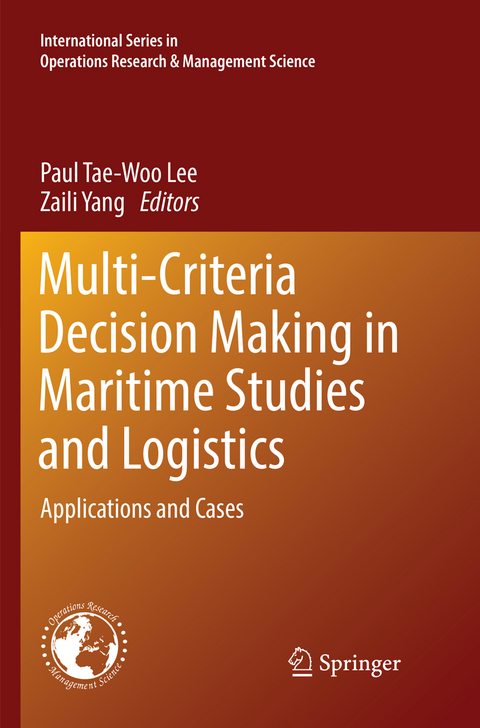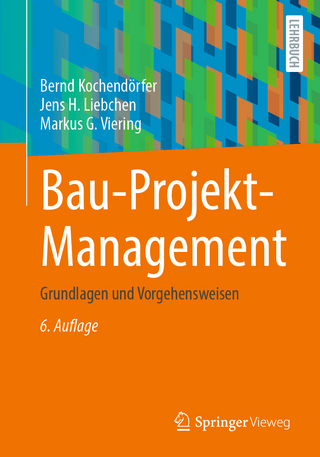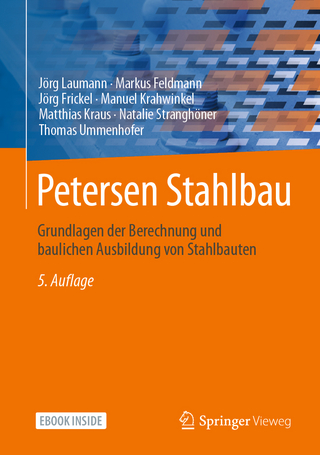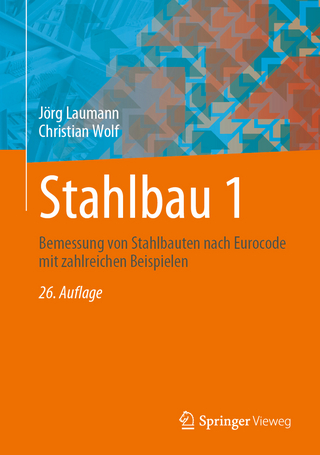
Multi-Criteria Decision Making in Maritime Studies and Logistics
Springer International Publishing (Verlag)
978-3-319-87294-0 (ISBN)
This book describes a wide range real-case applications of Multi-Criteria Decision Making (MCDM) in maritime related subjects including shipping, port, maritime logistics, cruise ports, waterfront developments, and shipping finance, etc. In such areas, researchers, students and industrialists, in general, felt struggling to find a step-by-step guide on how to apply MCDM to formulate effective solutions to solving real problems in practice. This book focuses on the in-depth analysis and applications of the most well-known MDCM methodologies in the aforementioned areas. It brings together an eclectic collection of twelve chapters which seek to respond to these challenges. The book begins with an introduction and is followed by an overview of major MCDM techniques. The next chapter examines the theory of analytic hierarchy process (AHP) in detail and investigates a fuzzy AHP (FAHP) approach and its capability and rationale in dealing with decision problems of ambiguous information. Chapter 4 proposes a generic methodology to identify the key factors influencing green shipping and to establish an evaluation system for the assessment of shipping greenness. In Chapter 5, the authors describe a new function of fuzzy Evidential Reasoning (ER) to improve the vessel selection process in which multiple criteria with insufficient and ambiguous information are evaluated and synthesized. Chapter 6 presents a novel methodology by using an Artificial Potential Field (APF) model and the ER approach to estimate the collision probabilities of monitoring targets for coastal radar surveillance. Chapter 7 develops the inland port performance assessment model (IPPAM) using a hybrid of AHP, ER and a utility function. The next chapter showcases a challenging approach to address the risk and uncertainty in LNG transfer operations, by utilizing a Stochastic Utility Additives (UTA) method with the help of the philosophy of aggregation-disaggregation coupled with a robustness control procedure. Chapter 9 uses Entropy and Grey Relation Analysis (GRA) to analyze the relative weights of financial ratios through the case studies of the four major shipping companies in Korea and Taiwan: Evergreen, Yang Ming, Hanjin and Hyundai Merchant Marine. Chapter 10 systemically applies modern heuristics to solving MCDM problems in the fields of operation optimisation in container terminals. Arguing that bunkering port selection is typically a multi-criteria group decision problem, and in many practical situations, decision makers cannot form proper judgments using incomplete and uncertain information in an environment with exact and crisp values, in Chapter 11, the authors propose a hybrid Fuzzy-Delphi-TOPSIS based methodology with a sensitivity analysis. Finally, Chapter 12deals with a new conceptual port performance indicators (PPIs) interdependency model using a hybrid approach of a fuzzy logic based evidential reasoning (FER) and a decision making trial and evaluation laboratory (DEMATEL).
Paul Tae-Woo Lee is a Professor at School of Business IT and Logistics and Leader of The One Belt and One Road Research Lab in Ocean College, Zhejiang University, China. He received his PhD from Cardiff University in the UK. He was a Visiting Scholar at, among others, the Faculty of Economics and Politics in Cambridge, University of Plymouth, Hong Kong Polytechnic University, and Dalian Maritime University. His research interests include maritime economics and maritime logistics. He is Editor-in-Chief of Journal of International of Logistics and Trade and an Associate Editor of Journal of Shipping and Trade. Zaili Yang is Professor of Maritime Transport at Liverpool John Moores University (LJMU), UK. His research interests are system safety, security and risk based decision making modelling, especially their applications in marine and supply chain systems. He has received more than 20 research grants from the EU and UK research councils, etc. and completed 5 postdoctoral and 17 doctoral projects. He is currently supervising 12 PhD students. His research findings have been published in more than 160 refereed papers in risk and supply chain areas, including over 70 (55 SCI/SSCI-cited) journal papers.
Chapter 1. Introduction.- Chapter 2. A Discourse of Multi-criteria Decision Making (MCDM) Approaches.- Chapter 3. Analytic Hierarchy Process (AHP) in Maritime Logistics: Theory, Application and Fuzzy Set Integration.- Chapter 4. Identification of Success Factors for Green Shipping with Measurement of Greenness based on ANP and ISM.- Chapter 5. Use of Fuzzy Evidential Reasoning for Vessel Selection under Uncertainty.- Chapter 6. Probabilistic Assessment of Vessel Collision Risk: An Evidential Reasoning and Artificial Potential Field-based Method.- Chapter 7. Incorporating AHP and Evidential Reasoning for Quantitative Evaluation of Inland Port Performance.- Chapter 8. Robust Evaluation of Risks in Ship-to-Ship Transfer Operations: Application of the STOCHASTIC UTA Multicriteria Decision Support Method.- Chapter 9. Financial Performance Evaluation of Shipping Companies Using Entropy and Grey Relation Analysis.- Chapter 10. Use of the Hybrid Fuzzy-Delphi-TOPSIS Approach in Identifying Optimal Bunkering Ports for Shipping Lines.- Chapter 11. Modern Heuristics of MCDM for the Operation Optimization in Container Terminals.- Chapter 12. Modeling Interdependencies among Attributes in MCDM: Its Application in Port Performance Measurement.
| Erscheint lt. Verlag | 24.8.2018 |
|---|---|
| Reihe/Serie | International Series in Operations Research & Management Science |
| Zusatzinfo | XIX, 363 p. 91 illus., 54 illus. in color. |
| Verlagsort | Cham |
| Sprache | englisch |
| Maße | 155 x 235 mm |
| Gewicht | 587 g |
| Themenwelt | Technik ► Bauwesen |
| Wirtschaft ► Allgemeines / Lexika | |
| Wirtschaft ► Betriebswirtschaft / Management | |
| Schlagworte | Case study • Container Shipping • maritime logistics • MCDM • multi-criteria decision making • Multiple Criteria Decision Making • Port |
| ISBN-10 | 3-319-87294-X / 331987294X |
| ISBN-13 | 978-3-319-87294-0 / 9783319872940 |
| Zustand | Neuware |
| Informationen gemäß Produktsicherheitsverordnung (GPSR) | |
| Haben Sie eine Frage zum Produkt? |
aus dem Bereich


